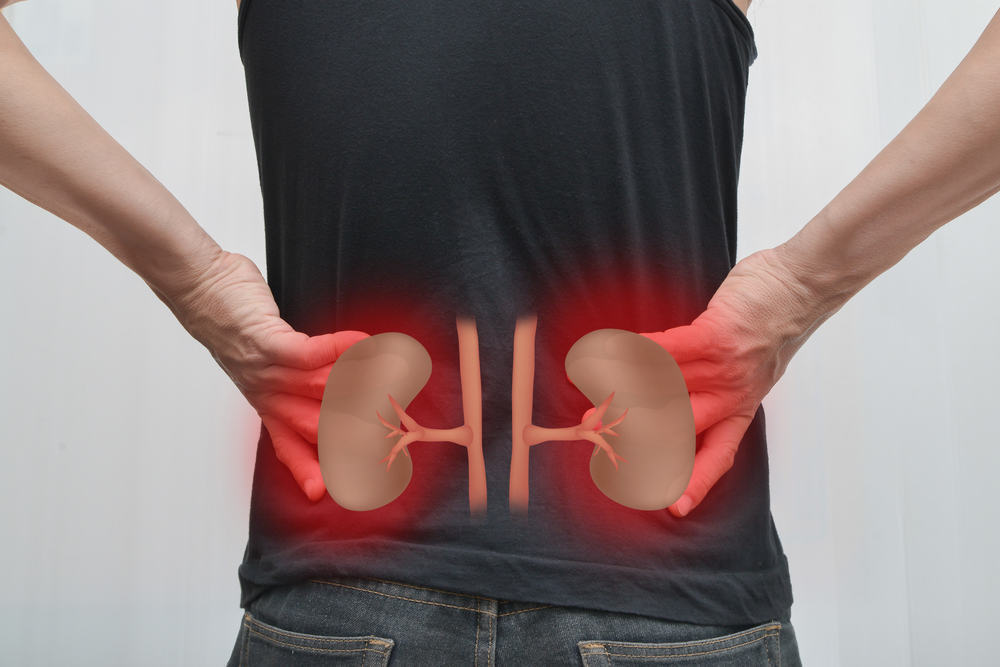Contents:
- Medical Video: Anemia - Causes, Symptoms, Treatments & More…
- Pregnant women are prone to iron deficiency
- Signs and symptoms of anemia in pregnant women
- Pregnant women need to check Hb levels routinely
- So, when do pregnant women need blood transfusions?
- Tips to prevent anemia in pregnant women
- Don't forget about folate intake before you get pregnant.
Medical Video: Anemia - Causes, Symptoms, Treatments & More…
Anemia is a health problem that is often experienced by pregnant women. Although quite common, anemia should not be underestimated. Anemia in first trimester pregnant women is reported to increase the risk of preterm birth, low birth weight (LBW), to low APGAR scores.
So, does having anemia during pregnancy make you definitely need to get a blood donor so that you don't cause the above risks?
Pregnant women are prone to iron deficiency
Anemia in pregnant women tends to be caused by iron deficiency problems from food intake. This anemia is called iron deficiency anemia.
In fact, iron needs will actually increase gradually during pregnancy. At first you will only need an additional 0.8 mg of iron per day in the first trimester, up to 7.5 mg per day in the third trimester.
However, iron from food alone will not be able to meet your needs during pregnancy. That's why pregnant women need additional iron supplements.
Throughout the period of pregnancy, the mother needs additional iron intake to ensure the fetus's growth process runs well, and maintain the optimal condition of the placenta. Adequate iron intake from food and blood boosting drugs as well as to avoid the risk of losing a lot of blood during labor later.
Signs and symptoms of anemia in pregnant women
Unlike normal anemia, anemia in pregnant women tends to be influenced by changes in body hormones that affect the production of blood cells.
Pregnant women generally experience an increaseblood plasma volume up to around 50% at the end of the second trimester, while red blood cells only increase by about 25-30 percent. This will cause a decrease in hemoglobin level (Hb). Anemia itself occurs when the amount of hemoglobin in the blood decreases dramatically.
Another change related to blood production which is also found in nearly 10% of healthy pregnant women is a decrease in platelet (platelet) levels that are below normal - to around 150,000-400,000 / uL. This condition is called thrombocytopenia.
This is important to know to prevent the risk of getting a blood transfusion that is not needed due to misinterpretation of the results of a blood test during pregnancy.
Pregnant women need to check Hb levels routinely
According to the Centers for Disease Control and Prevention (CDC) in the United States, anemia in pregnant women is defined according to gestational age, ie 11 g / dL or Hct <33% in the first and third trimester, and Hb <10.5 g / dL or Hct <32% in the second trimester.
Meanwhile according to the World Health Organization (WHO), in general, a pregnant woman is said to have anemia if the hemoglobin (Hb) level is less than 11 g / dL or hematocrit (Hct) is less than 33 percent.
Given the risk of anemia complications in mothers and infants, that's why the Ministry of Health of the Republic of Indonesia recommends that every pregnant woman take a routine blood test (including checking Hb levels). Ideally once during the first antenatal examination and again in the third trimester.
So, when do pregnant women need blood transfusions?
Anemia in pregnant women is said to be entering a severe stage and needs medical help immediately when the Hb level is less than 7 g / dL. However, the decision to get a transfusion for pregnant women who have anemia still requires careful consideration by paying attention to the patient's needs and the risks and benefits.
If the obstetrician assesses anemia to make your pregnancy at high risk for hemoglobinopathy or heavy blood loss during childbirth (either normal or caesarean), the doctor may decide to immediately seek the blood donor that is right for you.
Pregnant women with an Hb level of about 6-10 g / dL are also recommended to get a blood transfusion immediately if they have a history of postpartum hemorrhage or a previous haematological disorder.
Transfusion is more needed if anemia in pregnant women causes hemoglobin levels to drop dramatically to less than 6 g / dL and you will give birth in less than 4 weeks.
The target of transfusion in pregnant women in general is:
- Hb> 8 g / dL
- Platelets> 75,000 / uL
- Prothrombin time (PT) <1.5x control
- Activated Prothrombin Time (APTT) <1.5x control
- Fibrinogen> 1.0 g / l
But to remember, the doctor's decision to do a blood transfusion is not solely by looking at your Hb levels. If according to your doctor, your pregnancy is stable, aka not at risk, even though your Hb level is less than 7 g / dL, you don't need a blood transfusion.
In addition, blood transfusions also cannot be seen as a solution to eliminate the underlying causes of anemia in pregnant women or correct other side effects caused by iron deficiency.
Tips to prevent anemia in pregnant women
The CDC recommends that all pregnant women take iron supplements as much as 30 mg per day since checking your first pregnancy to prevent iron deficiency anemia.
Meanwhile, WHO and the Indonesian Ministry of Health recommend iron supplements as much as 60 mg for all pregnant women as soon as symptoms of nausea and vomiting (morning sickness) decrease.
Don't forget about folate intake before you get pregnant.
Although most cases of anemia in pregnant women are caused by iron deficiency, some pregnant women are also prone to anemia as a resultfolic acid deficiency.
Folic acid is a very important source of nutrition for pregnant women.At present, folic acid supplementation is required for all pregnant women because of its function that helps process the synthesis of fetal DNA during the womb and to regenerate the mother's body tissue.
The WHO and Ministry of Health of the Republic of Indonesia recommends supplementation of folic acid as much as 400 mcg / day as soon as possible before you plan a pregnancy and continues for up to 3 months after giving birth.












